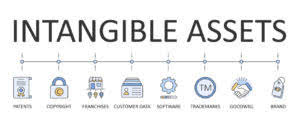Oil Gas Accounting, Back Office, Land Administration Expert Services
susanti
- 0

This requires detailed tracking of volumes delivered and adherence to contractual terms, ensuring revenue is recorded in the correct accounting period. Additionally, performance obligations must be http://www.kingdomfresh.com/index.php/what-is-501c3-status-and-why-does-it-matter/ clearly identified and measured to ascertain when they are satisfied, which can be particularly challenging given the contingent nature of many oil and gas transactions. Cost depletion is based on actual production, while percentage depletion offers a fixed deduction based on gross revenue, subject to a 15% cap for most properties. The intangible drilling cost (IDC) deduction under IRC Section 263(c) allows companies to deduct a substantial portion of drilling and development costs in the year incurred. This includes expenditures on labor, fuel, and supplies directly tied to drilling, offering a cash flow advantage. Tax considerations in the E&P sector include various deductions, credits, and compliance requirements.
Protect Assets and Data

Exact accounting data is critical for evaluating project economics, making informed investment decisions, and planning for the future. It enables companies to assess project viability, allocate resources efficiently, and make strategic decisions that contribute to long-term success in the industry. Accounting methods and principles should be applied consistently from one period oil and gas accounting to another. The principle outlines when and how to recognize revenue from the sale of goods or services.
Energy
Choosing CARES Act the right accounting software for your oil and gas company often involves multiple decision-makers. Finance and operations managers are typically the primary users, while IT departments or third-party consultants handle the implementation. Most oil and gas operations involve multiple stakeholders sharing costs, including drilling, maintenance, and equipment expenses.

Individual Income Tax Planning & Compliance
- We work with companies in all sectors of the energy industry to help them improve performance.
- Given the complexities of the oil and gas industry, accountants benefit from specialized training and education in energy accounting.
- With nine courses running as a webinar series (with several of them running twice) you’re sure to find something that piques your interest.
- Our dedicated financial experts are deeply entrenched in the industry, offering a comprehensive suite of oil and gas accounting services.
- Clients rely on us to manage bookkeeping and back-office processes, deliver complex audit services, recommend tax strategies and provide insights to drive success.
Valor serves as an oil and gas back office for oil and gas operators and energy investors. We offer oil and gas bookkeeping, revenue accounting and general ledger accounting for oil and gas operators and investors. We process monthly revenue statements and distributions, calculate state, federal and withholding taxes and serve as the liaison between the operator and third parties. Valor’s technology experts specialize in oil and gas accounting platforms with deep expertise across all major systems.

Adherence to financial reporting standards is paramount in the oil and gas industry, given the sector’s complexity and the significant financial stakes involved. These standards provide a framework for consistent and transparent financial reporting, which is crucial for investor confidence and regulatory compliance. Understanding the unique terminology and principles in oil and gas accounting is fundamental for anyone involved in the industry. One of the primary concepts is the distinction between upstream, midstream, and downstream activities.